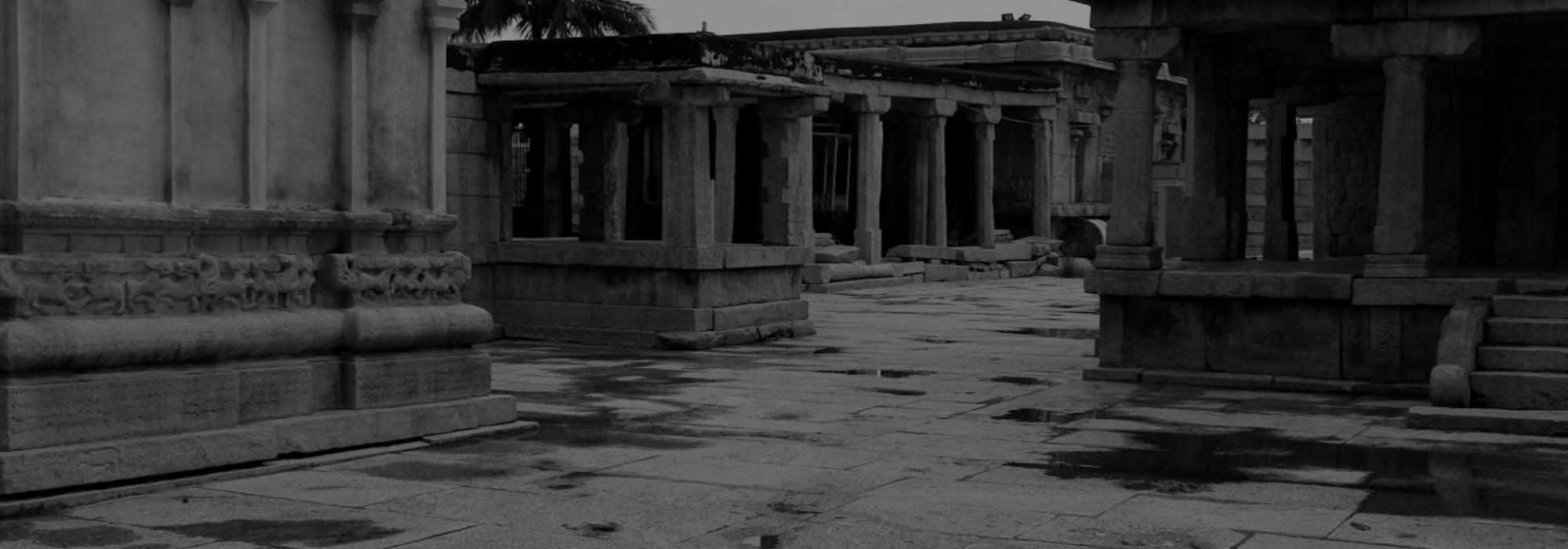In Chikkapete area of Bengaluru, near the garment shop belonging to Late Rajasevasakta Pamadi Subbaramashetty, on a lane to the east of the shop, was a large house. It was an enormous bungalow. Advocate Venkatagiriyappa lived there. Venkatagiriyappa was my father’s maternal grandfather. His era was the period that the British began ruling the Mysore province. During that time judgement tribunals known as sadar adalat courts were established, where lawyers called mokhthesars got opportunities to argue for the rights of the defendants. That was the time marwadis and multanis came (to Bangalore) to establish trade and commerce. Realising the opportunity of the times, Venkatagiriyappa moved to Bangalore and settled down as a lawyer.
He was born in a village near Anekal and Sarjapura. It was probably called Immadihalli. I am not aware of the details.
Venkatagiriyappa had two wives. The first one was childless. The second one probably had three daughters. out of those three, the first one was Venkatasubbamma - my father’s mother; Janakamma was next; the third one was Seethamma.
While he had these two wives, he ended up marrying a third one due to a dharmasaṃkaṭa (situation of deciding between two unpleasant alternatives). This is an incident worth relating.
Among Venkatagiriyappa’s relatives, a blind girl child was born in one of the families. The girl grew up and reached a marriageable age. But who will marry her? The parents enquired everywhere possible and proposed, but were disappointed. At that time, Venkatagiriyappa was quite well-known. The parents came to him and sought his help. Venkatagiriyappa with some words of solace said:
“I am prepared to proffer any amount for this bride (as dowry). Let it be a thousand, two thousand or three thousand – you find someone who is prepared to take the dowry and marry her. Leave the rest to me.”
The parents found courage again from this and explored again. The reader can guess the response they received.
“What do we do with the money? We will have to take care of this born-blind girl. That is a responsibility we cannot bear. Who would knowingly marry a blind girl?”
The girl’s parents came to Venkatagiriyappa again and detailed how their efforts were fruitless. What did Venkatagiriyappa do then?
“It is a good thing. Let it be. I now have two wives. The elder one has no children. If I marry this girl, my first wife will be ready to tend to her. None can comprehend God’s will. If God has chosen me to alter her status from being a bachelor girl to a wife, why should I say no?”
Guḍḍakkayya
This is how Guḍḍakkayya ended up being Venkatagiriyappa’s third wife. I don’t know whether she had any other name. Perhaps her name was Akkayya, but some brutes might have prefixed guḍḍi (blind) to it.
I have heard the story from my elders, up to this point. I don’t know the rest.
Venkatagiriyappa’s earning was significant. My father has related what he witnessed. “Marwadis, multanis and saits used to come. Every defendant who came carried a large plate filled with grapes, dates, almonds and other delicacies, and another plate stacked with currency notes, and placed it in front of Venkatagiriyappa. Some used to offer shawls and silk clothes.”
Further my father narrated, “My grandfather Venkatagiriyappa used to make me sit near him – because I was his daughter’s son and was a motherless child. Those grapes and dates used to get to my belly – limitless. I had diarrhoea due to this – emaciated hands and legs, but an oversized tummy. Everyone who came home saw this and expressed dismay. My stepmother Janakamma could not bear this and told my grandpa 'If we let this child be here, it will one day die of indigestion. Hand him over to me, I will take care of him.'
Accordingly Janakamma, wife of Sarjapura Ramanna, took my father with her when he was a young kid and cared for him. Janakamma did not have any other children. I distinctly remember my father lamenting intensely when he received news of her death.
Back to Mulabagal
My father’s childhood was spent in Sarjapura. He used to frequently recollect one Srikantabhatta play with him during his young age. While my father was thus staying in that place, his uncle Ramanna in Mulabagal used to reminisce about this and argue repeatedly with his brother Sheshagiriyappa : “We (our family) have only one boy. Can we just leave him elsewhere? We should get the child here quickly. We should not ignore this. As time passes, the child’s connection (to us) will diminish.” Thanks to this objection, my father was taken to Mulabagal. He must have been six or seven then.












































